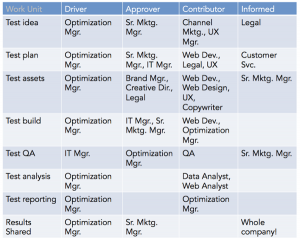
Social media has many legitimate marketing uses. When used right, social lets you build a genuine relationship with your customers. It helps you find out what people are saying about your brand and it enables you to share interesting content with your audience. Regardless of whether they’re in B2B or B2C, most businesses today can’t afford not to have a social media presence.
But there’s one thing that social media isn’t great for: lead generation. Social media works effectively for many marketing activities, but generating new leads isn’t one of them. In fact, when it comes to generating leads, the good ol’ email will always beat social media. One 2014 study from management consulting firm McKinsey & Company suggests that email conversion rates are 40 times higher compared to Facebook and Twitter combined. “The rate at which e-mails prompt purchases is not only estimated to be at least three times that of social media, but the average order value is also 17 percent higher,” according to the report.
An understanding of its drawbacks as a lead gen tool is critical to getting the most out of social media marketing. So why is email, a relatively old channel, better suited for generating leads? Here are a few reasons why.
With email, you’re reaching an audience that already knows you.
People in your email database have opted-in to get communications from you. They already know you, and at one point, you’ve impressed these people enough that they’ve raised their hands and have indicated that they want to hear from you in the future.
Social lacks that same level of commitment. A social media follow isn’t quite as powerful as an email opt-in. Following someone on social is a more passive activity than signing up for email communications. It’s not unusual for people to follow thousands of people and brands on social, but most would only sign up for only a handful of emails. Email requires a deeper level of engagement and trust.
There’s too much noise on social.
The same thing that makes social media exciting and dynamic also makes it a difficult marketing channel: the volume of content. In a single day, Twitter users generate 500 tweets. On Facebook, users post 55 million status updates per day. On Instagram, over 70 million pictures are posted on a daily basis.
Companies are competing for people’s attention on social. And because of the volume and velocity of social media content, only a small fraction of your social media audience sees your updates. For instance, Facebook’s edgerank limits the reach of your posts: only 2 to 6 percent of your fans actually see your content. Twitter doesn’t have an algorithm (at least not yet), but it’s easy to miss updates because people tweet a lot.
People are more likely to see (and click on) your email.
Open rates for email marketing messages are generally in the 20 to 25 percent range. If you assume a six percent reach rate for Facebook, that means your message is five times more likely to be seen through email than social.
Click through rates are also generally higher on email, as Campaign Monitor explains:
Click through rates from email are generally in the 3% range, while click-through rates on Tweets are generally in the 0.5% range. This means you are 6x more likely to get a click-through from email than you are from Twitter.
In order to show this in action, influential marketing blogger Derek Halpern ran a test where he sent his latest blog post to the same number of people via both email and Twitter. Here are the results:
– 300 people clicked through to the article from Twitter
– 4,200 people clicked through to the article from email
You get to say more on email.
Some things require more than 140 characters. Yes, emails need to be brief as well, but at least you’re not limited to a certain number of characters. To get someone to take action, you often need to say more than a couple of sentences.
How to fix social media marketing
In the same way that email marketing did not kill SEO, social media marketing isn’t killing email marketing. In fact, email still beats social, and it will probably do so forever.
This doesn’t mean you should abandon social media. But it does mean you have to rethink your approach to social, and consider the very real limitations of this medium.
The first step is to acknowledge that social media is not necessarily a lead gen channel. For many companies, social is better suited for brand awareness and customer support functions. Sharing interesting—and usually ungated—pieces of content is more likely to resonate on social than doing a hard sell. You’re more likely to get leads on social if your content is useful and interesting. Regardless of whether you’re posting gated or ungated content, the quality of those pieces need to be super high.
Most of us also have to stop looking at social media as a purely organic/earned play. The social media landscape is following the trajectory of SEO/SEM where paid efforts are becoming just as crucial as organic ones. Facebook openly states that it is limiting promotional updates on people’s newsfeeds. If you want to generate leads on social, you have to make sure you have the budget for advertising.
And given that we know that email will almost always convert better than social, we have to think of ways of bridging the gap—of converting social media followers into email subscribers. I think the best way of doing that is through your corporate blog. If you are producing high quality blog posts, why not start a blog newsletter and get people into your database that way? When people opt-in to your newsletter, you now have them in your database and you can start marketing to them via email.
Social media marketing is far from dead, but it is at a critical juncture. And despite people complaining about email overload, the truth is that email marketing is still a very effective tactic. Understanding how social can help drive your email strategy is the key to maximizing your social media marketing efforts.
(232)
Report Post





